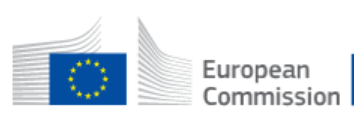Data Management Plan
What is research data?
Research data is "data collected or produced (e.g. measurements, questionnaires or source materials) in the course of scholarly activity which is used for the purposes of academic research (e.g. digital copies) or which document research findings [...]". forschungsdaten.info
Some examples of research data
- Sources: Texts, images, sound recordings, films/videos
- Observations: Real-time data, examination data
- Experiments: Laboratory values, spectrograms
- Simulations: Simulation measurements, model measurements
- References: Collection of already published datasets
- Methodological methods such as questionnaires, software or simulations
What is a data management plan?
A data management plan (DMP) forms the basis of good research data management. The DMP describes the life cycle of research data and is intended for long-term use. It describes how the data is to be produced, collected, documented, published and archived during a project.
An integral part of a DMP is the description of the research data in accordance with the FAIR principles. Among other things, a DMP should include information about the following:
Data collection and documentation
Ethical, legal and security issues
Data storage and preservation
Data exchange and reuse
The DMP is submitted along with the project proposal (SNF) or shortly after the project has commenced (H2020), and it should be updated and extended at regular intervals. As it describes discipline-specific practices and standards, the content may differ from project to project.
Funding requirements
The Open Science Research Data Management Team will be happy to support you by advising how to comply with funding agencies' requirements in Open Research Data for the European Commission (e.g., Horizon Europe) and other national (SNSF) and international projects. We offer individual support and training sessions as well as workshops based on your needs for you and your team on request. Please contact us via openscience@unibe.ch.
Swiss National Science Foundation (SNSF)
The DMP is an integral part of the research application. The application cannot be submitted until the DMP has been completed. The DMP must be written in the same language as the research plan. The SNSF contributes up to 10’000 CHF to the costs of making research data accessible, under the condition that the repositories used for data sharing meet certain requirements (AR 2.13). The application for this additional funding must be taken into account when submitting the application. For more information, see the SNSF guidelines for researchers.

You must submit a DMP no later than six months after the start of the project to the EU’s project management portal. A template with guidance can be downloaded here.
All projects are part of the "Open Data Pilot", i.e. researchers must make research data underlying publications openly accessible. Exceptions for ethical, legal, contractual, copyright, and similar reasons are possible ("opt-out"), but they must be justified to the EU.
The European Research Council (ERC) requirements differ from the general Horizon2020 requirements only in details. This page gives a good overview and links to further resources and the ERC DMP form.

Information as of June 2022
Regarding participation in the Horizon Europe framework, Switzerland is considered as non-associated third country until further notice (more information). Substitute funding measures for Swiss researchers are mainly provided by the Swiss National Science Foundation (SNSF) and the State Secretariat for Education, Research and Innovation (SERI). More information on the Grants Office website.
For these replacement funding measures, guidelines for open access publishing and research data management apply as follows:
For the replacement measures by the SNSF, the SNSF Open Science requirements apply (see above and here).
For the substitute measures by SERI, the specifications of the European Union apply (see here). They stipulate that:
- Data must be managed according to the FAIR data principles. FAIR stands for Findable, Accessible, Interoperable, Reusable.
- A Data Management Plan (DMP) must be written, typically submitted six months after the start of the project, and updated at least at the end of the project period. It is recommended to use the official template.
- Research data must be shared openly on a repository if there are no legal, copyright, ethical, contractual or similar clauses. Unlike under Horizon2020, the EU requires a mandatory CC0 or CC BY license (or equivalents).
If you are unsure what these requirements mean for your project, please contact us at openscience@unibe.ch.


National Institutes of Health (NIH)
Effective January 25, 2023, the following guidelines apply to NIH-funded projects:
Researchers must develop and submit a data management plan together with the project application, and update it regularly. The NIH will review the DMP. They may also review implementation during the life of the project. Failure to comply may affect the success chances of future applications.
In addition, researchers must share research data as soon as possible, at the latest at the time of a related publication appears or at the end of the project (whichever comes first). Legal and ethical considerations must be taken into account.
Templates and examples
Please be aware that the funding agency can change the template. Please contact the research data management team via openscience@unibe.ch for details and further information.
Templates
- Data Management Plan – mySNF template
- DLCM DMP templates
- ERC-DMP template
- DMP EU Horizon 2020
- NIH Data Management and sharing. A preview of this format page is available now, with a final fillable format version available by Fall 2022.
Beispiele
- DMP-Beispielsammlung DCC (e.g., Horizon 2020)
- DLCM SNSF DMP template and guideline (PDF, 637KB)
- DMP examples SNF
- NIH DMP
- NIH Examples of Data Sharing Plans
DMP examples SNSF
DMP videos and slides
How to write a successful research data management plan (DMP)? The Open Science Team will be happy to guide you through video modules available via YouTube.

